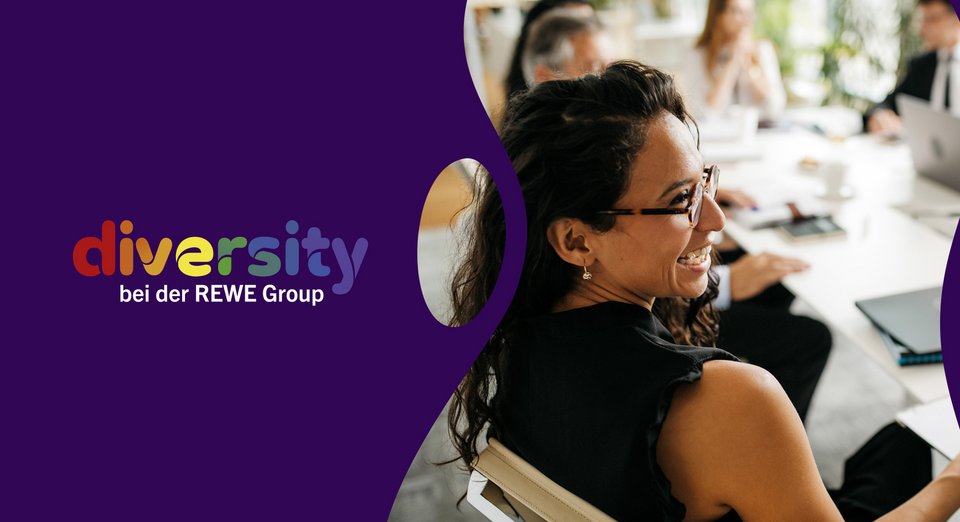
Diversity makes teams more successful. Diversity is part of the REWE Group culture. And: diversity can be learnt. In an interview with one, Petra Meyer-Ochel explains how different personalities with different skills can work together fruitfully. She is part of the Diversity Network, which bundles and drives forward the numerous diversity measures at REWE Group. As a diverse team.
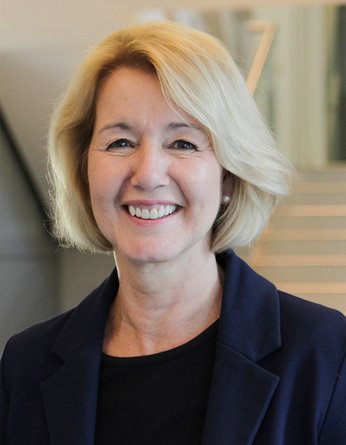 Dr Petra Meyer-Ochel
one: Petra Meyer-Ochel, you are part of Retail Germany's "Diversity Network", which was founded around a year ago. Each of the nine members is committed to diversity issues within the company and they pool their knowledge in the network. Why did Retail Germany decide in favour of this rather unique model and not simply appoint a diversity manager?
Dr Petra Meyer-Ochel
one: Petra Meyer-Ochel, you are part of Retail Germany's "Diversity Network", which was founded around a year ago. Each of the nine members is committed to diversity issues within the company and they pool their knowledge in the network. Why did Retail Germany decide in favour of this rather unique model and not simply appoint a diversity manager?
Petra Meyer-Ochel: We very consciously decided against traditional diversity management because we want the topic to be lived out within the company. Our Diversity Network is made up of representatives from various HR departments and focal areas. Representatives include PENNY and REWE, the works council and the di.to network. We have representatives for the topics of inclusion, generations, work-life balance and the advancement of women... The network includes people who are anchored throughout the organisation and deal with these diversity issues on a daily basis. Together, we drive our respective ideas forward and raise awareness of the topic, just like a snowball system.
one: How does the network work in concrete terms?
Petra Meyer-Ochel : Everyone deals with their own specific topic, be it gender equality or inclusion. We meet three to four times a year to discuss the overarching issues we want to tackle. We are a working group that pools and communicates the diversity measures that exist throughout the company.
one: What topics is the Diversity Network currently tackling?
Petra Meyer-Ochel: Our first goal was to make transparent where diversity initiatives already exist throughout the company. We documented this with the Diversity Story, which can be found on the intranet in the Networks portal. We are taking part in the discussion on gender-appropriate language, the result of which is currently being finalised. An e-learning programme on the topic of unconscious thought patterns and prejudices has just been completed.(You can read more about this in one on 27 May).
For Diversity Day on 31 May, we are planning a hands-on campaign for all colleagues(you can find out more about this in one on 31 May) and a series of events. In close cooperation with Corporate Communications, we are trying to continue to sensitise senior managers and employees to this topic.

„For success, it's not enough to simply put together colourful work teams. One woman, one man, one young, one old... that's not enough.“
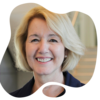

one: What do you personally value most about this network?
Petra Meyer-Ochel: Above all, the transparency that we have created and the opportunity to further embed the topic of diversity in the company. We were amazed at what is going on. It's great to see how diversity is already being put into practice.
one: Why do you live diversity in a company? And is a colourful team already diverse?
Petra Meyer-Ochel: Many studies show that diverse teams achieve better work results. However, it is not enough to simply put together colourful teams to achieve success. One woman, one man, one young, one old... that's not enough.
The composition of diverse teams is about diversity in terms of professional and personal competences. On the one hand, it is enriching when people with different expertise look at a topic. For example, if I'm developing an IT application, I don't just bring the developers into the team, but also the users. If development takes place in a specialised "silo", the problems would probably only come to light when the finished product is used by the user.
On the other hand, teams are more successful when different personal experiences and skills are present, as they bring a variety of perspectives, qualifications and socialisation to the table. One person is good at conflict management, another has international experience, the third is the creative one... Of course, this makes it possible to work together differently than if all team members had the same background.
one: Doesn't such a potpourri of personalities harbour many conflicts?
Petra Meyer-Ochel: It can be a source of conflict, yes. But the basis for a consciously diverse team is the willingness of everyone to listen, to empathise with others and to include their perspectives in finding solutions. Diversity is about working together.

„We are on the right track when it comes to REWE Group's corporate culture. Values such as respect, fairness and openness are already firmly anchored in our mission statement.“


one: How do you put together a divers-successful team?
Petra Meyer-Ochel: This is a management task and not always easy. The challenge for senior managers is to consciously select employees who tick differently both professionally and personally.
one: Is it enough for senior managers to keep their eyes open? Or do you need mandatory further training, quotas...?
Petra Meyer-Ochel: In any case, the support of top management is important. Really promoting and living diversity is only possible through respectful and open cooperation that is anchored in the corporate culture. Only if this is lived authentically will employees feel the same way. Individual measures are certainly supportive.
 DIVERSITY SERIES IN ONE:
DIVERSITY SERIES IN ONE:
From today onwards, one will feature an article every day showing where and how we live diversity everywhere at REWE Group. The highlight is the big hands-on campaign on 31 May, German Diversity Day.
one: Changing a culture is a long-term endeavour. Where do we stand on this?
Petra Meyer-Ochel: I am convinced that we are on the right track at REWE Group. Values such as respect, fairness and openness are already firmly anchored in our mission statement. Our LGBTIQ network di.to has been in place since 2013, and measures to promote women have been in place for several years and are becoming increasingly important. We have been integrating many colleagues from over 150 nations for a long time, particularly in the stores and in logistics.... We have a dialogue-oriented culture; we involve employees in solution-finding processes. And that is the culture that promotes diversity. That's why I think we're on the right track.
one: Taking a step back: How can I learn to deal with diversity and better utilise its benefits?
Petra Meyer-Ochel: First of all: by listening, asking questions, changing perspectives. Becoming aware of your own prejudices, which we all have. It is simply important to get feedback and to reflect on yourself. We offer these topics in many training programmes for different target groups. In logistics, for example, with its many colourfully mixed teams, we run intercultural training courses. There is also our voluntary, ten-minute e-learning programme on unconscious thought patterns and prejudices. And last but not least, we learn how to deal with diversity through learning by doing.

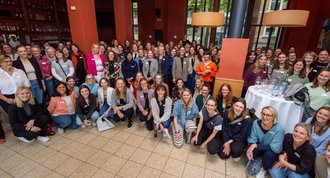

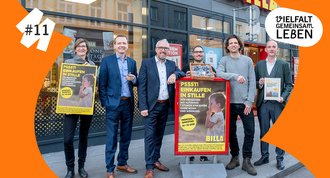
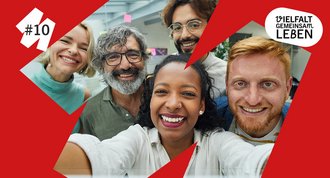
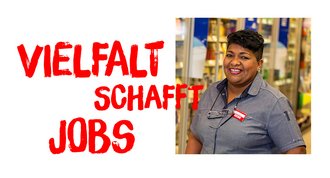
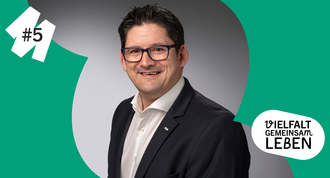
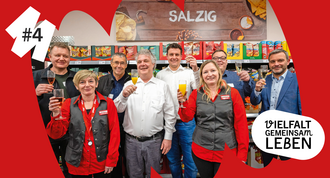
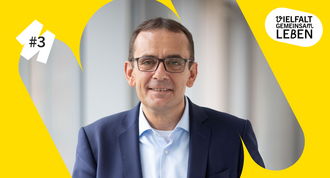
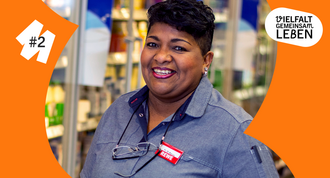
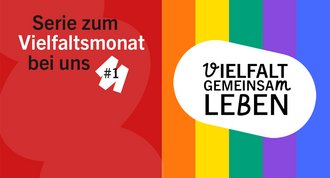
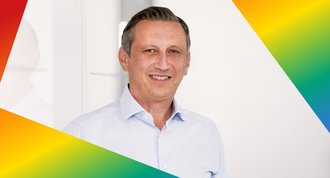

Both German and English comments appear here.
Thank you for this great interview. Diversity is a multidimensional driver for the success of organisations. In the end, diversity means that we are concerned with people and what they bring to the table, both professionally and personally. :)